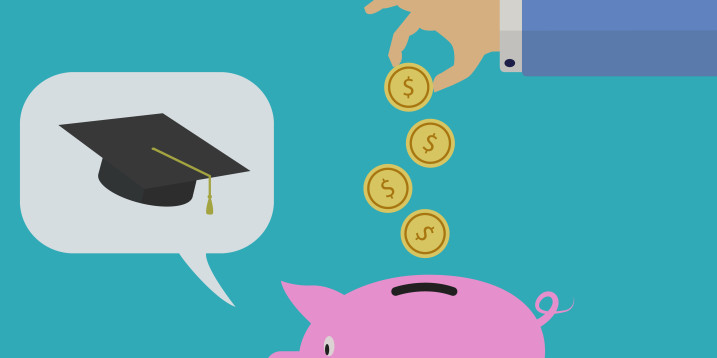By Taylor Squires, Lambda Columnist
Let me preface this article by saying that although I will be providing tips throughout this article, I am in no way a financial advisor, nor am I an expert in accounting.
With that being said, when I realized in high school that I would have to rely on student loans to pay for my post-secondary education, I decided to set an ambitious goal for myself: I wanted to figure out a way to pay off all of my student debt before graduation.
According to The Canadian Federation of Students (CFS), the average Canadian student graduates with roughly $27,000 of debt.
When you break it down, that number is completely understandable. School is expensive and as students, it seems more logical to just deal with it once you’ve graduated because hopefully, you’ll be working full-time.
Be that as it may, trust me when I say that you will be thankful that you began working towards your repayment now! Here are four of my tips that will help get you started:
1. Apply for scholarships and bursaries
Throughout my five years of university, I’ve received over $12,000 in scholarships and bursaries. Every year, I make sure to apply for all of the awards and financial aid that is applicable to me and if I am chosen, I make sure to immediately put the money towards my student loans.
Although the application process can sometimes seem time-consuming, it is well worth it.
2. Work as much as you can in the summer
One of the hardest parts about going to school full-time is maintaining a part-time job. For some programs, it is exceptionally difficult, which is why it is important to take advantage of the summer break.
During the first two summers of university, I ended up spending more than I saved, even though I was working full-time. Once I realized what was happening, I decided to start setting financial goals in May so that I knew how much I should be putting towards my student loans throughout the summer. I found this to be a very effective way to not only pay off debt but also gain a better understanding of my spending habits.
3. Don’t get discouraged if you have a setback
Setbacks are a part of life, but when you’re working hard to pay down debt, it can make you feel like the sky is falling.
For me, when I had a minor setback such as needing mechanical work done on my vehicle or replacing a broken cellphone, I would make the problem worse by going on a shopping spree.
I would think: I’m already in debt, what’s another $500? Take it from me and please do not do this. Instead, stay focused on your goal.
In brief, it is clear that paying off student debt is no easy feat. However, like most things in life, the more knowledgeable you are about it, the better off you will be.
In addition to the tips mentioned above, I’d recommend you start learning about personal finance (especially when it comes to interest rates and money management).
To put it simply: never stop learning, planning, and committing to your goals.
Happy saving, everyone!
editor@thelambda.ca
